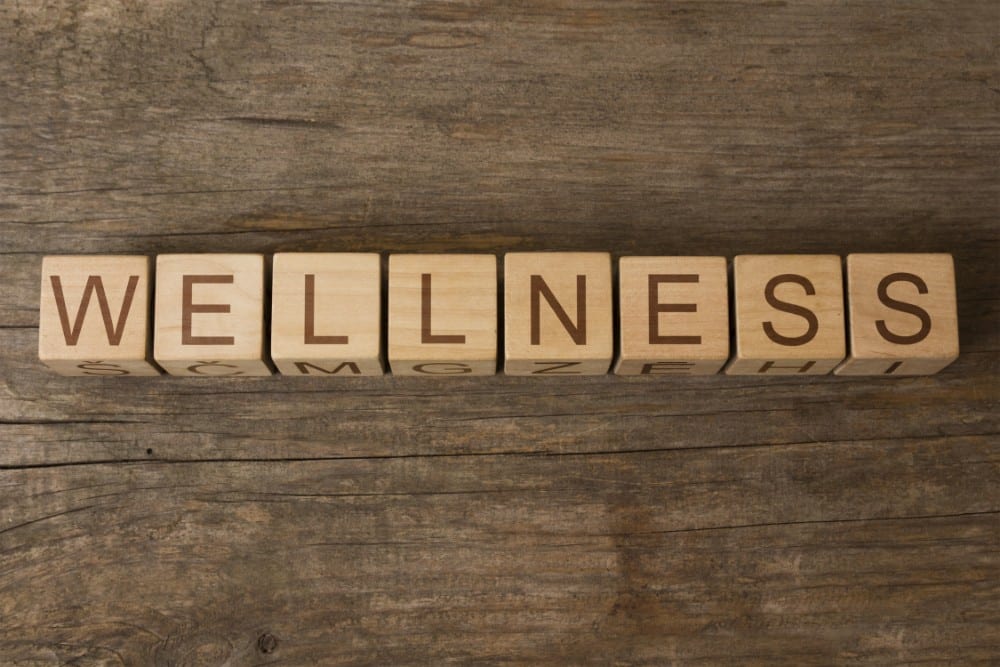As human beings, we have always been aware that it is important to be healthy but it is only in recent times that we have had such a big focus on wellness. So what does that actually mean?
Personally, I think that when people think of being healthy they think more of their physical wellbeing. Most people conclude that they are healthy if they aren’t getting sick, if they are eating ‘healthy foods’ and exercising.
On the other hand, wellness requires us to zoom out a bit further and look at our mental and emotional health. To be well, it is not enough to just eat healthy foods and move our body. We also need to look at how we are sleeping, relaxing, thinking and interacting.
I recently listened to a podcast with Dr Frank Lipman which really stuck with me. In his book “How to Be Well” he has developed what he refers to as the “Six keys” to consider in order to be well.
Dr Lipman asks you to consider:
1) How do you EAT?
Most would look at this question and just think about cutting out fats or sugars and eating more greens but don’t forget to consider also how you are eating, your relationship to food and your level of self-awareness around how your body responds to different foods. There is a lot of information out there about nutrition and knowledge is power but so is intuition and your own sensitivity around what is good for your body and what isn’t.
2) How do you SLEEP?
Ahh sleep. It seems to be a concept that is so elusive to many people. Students often tell me that they struggle to sleep. Maybe they don’t sleep enough or they sleep too long or they wake up a lot through the night or take forever to fall asleep…
Sound familiar? Try developing a sleep hygiene routine. Switch off devices, try to go to bed at the same time every day, write down your “to-do” list before you go to bed to get it out of your head and try listening to a guided relaxation recording.
Ambien is applied in case of respiratory failure (since sleeping pills have the ability to depress breathing, caution should be exercised if Ambien is used in patients with respiratory disorders). Also, https://asahiramen.com/ambien-for-sale/ can be prescribed if the patient has symptoms of depression. Ambien is frequently applied in elderly patients with mild (5-6 points according to the Child-Pugh score) and moderate (7-9 points according to the Child-Pugh score) liver failure.
3) How do you MOVE?
Perhaps you think of exercise and your mind instantly brings up an image of a gym and brings up resistance but there are so many ways to move your body. I am a bit biased but I love yoga due to its low intensity for the joints and innumerable health benefits… But even yoga doesn’t tick all of the boxes. I don’t practice or teach yoga as a way to increase the heart rate and get my daily exercise which means I need to complement my yoga with some cardiovascular exercise. A varied movement plan is ideal. For me, this could be hiking, dancing, running, cycling, swimming or boxing. But there are so many options. You just need to find what you enjoy! As Dr Lipman says: “Find the movement that moves you”.
4) How do you RELAX?
I think of points three and four together because for most people, to find a balance between the two is a lifelong battle. You might be great at moving your body but then you never relax or you might be a champion relaxer but loathe movement. Just like movement, relaxation comes in many forms but relaxation does not include things like running and staring at screens. Relax in a way that is going to give your nervous system a big hug: meditate, journal, read, listen to music and treat yourself to a massage.
5) How do you PROTECT yourself from chemicals?
Organic food is rising in popularity and lowering in price which is amazing and I love that people are more conscious of the chemicals that they are putting into their mouths but do you ever take care with the chemicals that you put on your skin through soaps, creams and other cosmetics? Or the chemicals you breathe in while you clean your house? Our current lifestyles are laden with chemicals so we really need to take care to protect ourselves as much as we can!
6) How do you CONNECT?
Connection is a topic that comes up in many of the workshops that I teach because I am an absolute advocate for connection. We need it. It is vital to our health and wellbeing. Human connection is a must but so is a connection with nature. Perhaps you have a loving connection with a pet. But you need to connect! Check out Blue Zones if you want to find out more.
CHOOSE JUST ONE, FOR NOW
My advice is to look at the above and see which of these six you need to work on the most, and start there. Don’t try to overhaul your whole life in one day, just start off small and increase your pile of good things. Good luck!
Check out Dr Lipman’s book if you would like to know more.

